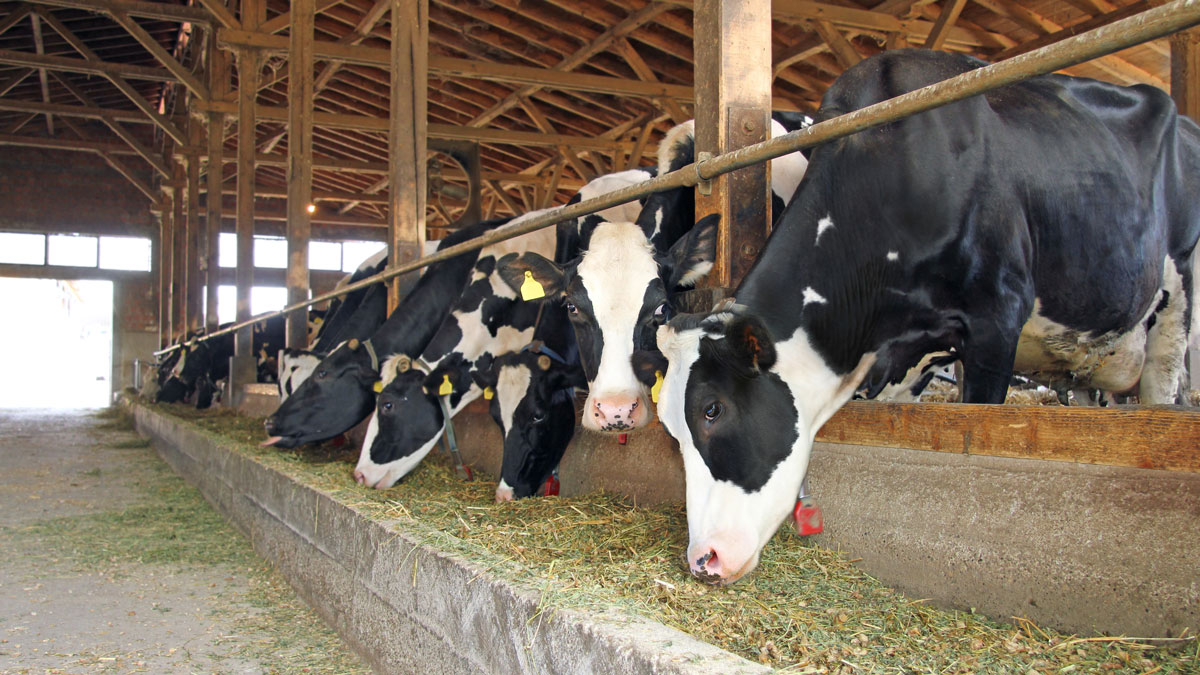A Climate Crisis Call to Action
Dialogue

After decades of warnings from scientists and activists, world leaders have slowly begun to recognize climate change for what it is: a global emergency. Reducing methane emissions—which trap 86 times more heat in the atmosphere than carbon dioxide and are responsible for nearly 20% of global warming—was a top priority at the COP 26 climate change conference last year.
Yet remarkably, throughout these high-profile climate talks, we rarely heard mention of the industry responsible for producing more than one-third of global methane emissions: animal agriculture. Forget the elephant in the room: It’s the cow in the room everyone has decided to ignore.
Agriculture, forestry, and land use cause 46% of methane and 7% of carbon dioxide emissions, much of which is driven by food production. And to date, many of these industries have made little effort to curb their contributions to climate change. Recent data released by the FAIRR initiative, an investor network focused on the sustainability and governance risks of intensive animal agriculture, showed that only 18% of global meat and dairy producers track even partial methane emissions—and of that group, one in four saw an increase in emissions last year.
The science is clear: With animal agriculture responsible for roughly one-fifth of total greenhouse gas emissions, meeting our climate goals will be impossible without rapid changes to global food systems. In other words, if we do not revolutionize the way our world makes meat, we will fail to meet targets agreed at COP26 as well as the 1.5°C target set at COP21.
As scientists call for rapid changes to decarbonize the food system, we have a global opportunity to meet these ambitious climate goals by investing in innovative ways of making meat using microbial fermentation, plants, and cellular agriculture.
The Global Innovation Needs Assessments study launched at the start of COP26 demonstrated the enormous potential of this approach. The report, funded by the UK Foreign, Commonwealth and Development Office and the ClimateWorks Foundation, found that diversifying our protein supply to include plant-based and cultivated meat could be almost as beneficial as investing in solar power. A shift toward sustainable proteins could also potentially free up 640 million hectares of land—an area larger than the Amazon rainforest—for rewilding, carbon capture, or sustainable agriculture.
Renewable energy sources have undergone a revolution over the past decade, with researchers driving innovations that have helped cut the cost of solar photovoltaics by more than 85%. With global demand for meat expected to rise 50% between 2013 and 2050, we need scientists, engineers, and policymakers to deliver a solar revolution for the meat industry and develop sustainable proteins that match animal products on taste, price, and scale.
But revolutionizing our food system cannot rest on the shoulders of nonprofits and the private sector alone. If we’re serious about tackling methane emissions, we need serious government investment in alternative proteins. With public support, researchers can dedicate their talents to addressing key challenges: advancing innovations that improve taste and texture, bringing down prices, and increasing availability. Achieving success on these attributes will help make sustainable proteins the default choice, bringing us one step closer to a safer climate.
We have only just begun to scratch the surface of this food revolution, and there is a huge amount of research that still needs to be done for plant-based and cultivated meat to become an integral part of the global food supply. Through their work, researchers can address key industry questions and build the foundation of the global sustainable protein field. Now is the time for other leading innovators to join this movement and transform the global food system. Only then will these ambitious climate goals stand a chance at success.
The opinions expressed in Dialogue are those of the author.
Digital Exclusives

10 Food Trend Predictions for 2022
The editors at Food Technology magazine, published by the Institute of Food Technologists (IFT), have announced their predictions for the hottest food trends for 2022.
Food Technology Articles

Better Juice and Ingredion Collaborate and More Ingredient News
News about food industry suppliers

How to Achieve EPR-Forward Packaging
In this two-part series, the author explores the history of Extended Producer Responsibility (EPR), what is needed to help EPR succeed, and how brands can best prepare for EPR.

Future Food-Tech 2024 Tackles Transformation, Underscores Collaboration
Mission-driven Future Food-Tech exhibitors and conference presenters showcased innovative, transformative ingredients and technologies and emphasized the importance of collaboration in addressing food system challenges.

Keeping the ESG Promise
An infographic describing food and beverage companies’ outlooks regarding ESG initiatives.

Ag-Tech’s Passionate Pragmatist
Agrologist and agricultural futurist Robert Saik wants to feed the world better and more sustainably. To make that happen, leveraging science and technology will be critical.
Recent Brain Food

A New Day at the FDA
IFT weighs in on the agency’s future in the wake of the Reagan-Udall Report and FDA Commissioner Califf’s response.
Members Say IFT Offers Everything You Need to Prepare for an Uncertain Future
Learn how IFT boosts connections, efficiencies, and inspiration for its members.

More on the FDA's Food Traceability Final Rule
In a new white paper, our experts examine the FDA’s Food Traceability Final Rule implications—and its novel concepts first proposed by IFT.
Job Satisfaction in the Science of Food is High but Hindered by Pain Points
IFT’s 2022 Compensation and Career Path Report breaks it down.


